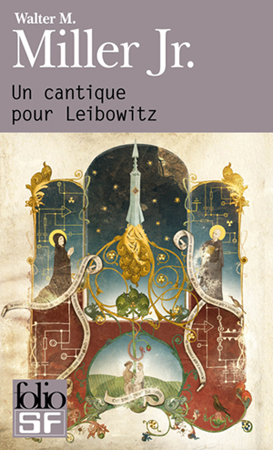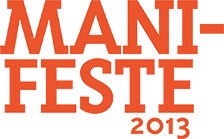In the science fiction book A Canticle for Leibowitz, Walter M. Miller Jr. describes a post-apocalyptic nuclear future where a group of monks preserve a body of neglected knowledge, limiting access to this information to avoid returning humanity to chaos. This American book published in 1959 that addresses the destiny of knowledge has recently been republished in French by Folio SF. We spoke with the director of this collection (Pascal Godbillon) and a journalist who specializes in this domain (Jérôme Vincent).

What is the subject of the book?
Jérôme Vincent. This book is made up of three parts; each part takes place during a different time, several centuries apart. The subject is the destiny of a monastery. The first part takes place six centuries after a nuclear apocalypse. The survivors refuse all forms of knowledge under the pretense that science had led the world to a catastrophe. A young monk discovers a secret place filled with books. After certain events, the works are hidden within the religious edifice.
What pushed the author to write such a fable?
J. V. In principle, the destruction of the Monte Cassino abbey during the Second World War pushed Walter Miller to write this book in the 50s. This former soldier was involved in combats around the building. The connection seems obvious, just like nuclear trauma in Hiroshima and Nagasaki. The man was more a short-story writer than novelist and A Canticle for Leibowitz was his only work (and is made up of three long short stories). Miller committed suicide while writing the following episode during the 90s.
Pascal Godbillon. The war was particularly bloody for Miller. He wrote this book as a kind of therapy. Walter Miller Jr. lived in solitude. He wrote to authors he liked to congratulate them, but always told them that he didn’t want to meet them! We can also think of a SF author like Joe Haldeman who wrote The Forever War when he came back from Vietnam.
What is the meaning of this story?
J. V. The work is ripe with numerous themes and questions. It evokes the fluctuations of humanity, going from a period of technology to one of barbarism in which science and knowledge is refused. The question of knowledge and its connections with peace is explored. Are we happier with knowledge?
P. G. This is a highly topical novel if we analyze the events in Syria, for example. The grand principle of the book is that humanity almost destroyed itself and despite that, it began again. From an archive point of view, the book’s lesson is that with digital technology, mankind would have found itself with dead silicon after the apocalypse. With paper archives, they are able to recreate the earliest forms of technology. With digital supports, we can lose understanding of both the signal and the signal itself.
So this book, like other science fiction books, echoes our reflection on the loss of knowledge?
J. V. Yes because science fiction is basically a genre that never stops questioning our present. It is also for this that the book remains topical, close to us. In terms of references, we can cite Foundation by Isaac Asimov of course, where a community of scientists saves human knowledge in preparation for a barbaric period.
P. G. Concerning the problem of archival storage, I think about Borges and his Library of Babel that stocks unreadable books. Another work comes to mind: Le Successeur de pierre. Its author, Jean-Michel Truong begins with a pope’s bull and then moves on to a future (2032) where men are stored in the pyramids. He presents humanity like something transient. In the French title the author has put a capital letter on the word Successeur successor, rather than on pierre because it is successor who is the superior being. The successor is digital technology; the digital age that must replace humanity. We archive consciousness in silicon. A book that is close to your theme…
Why did you decide to republish A Canticle for Leibowitz?
P. G. The book has been unavailable for a few years. Sales weren’t very high so we decided to leave it be. This decision frustrated me because it’s a major work. A few years later, Walter Miller began writing the next episode. But he had writer’s block. He looked for an author who could finish the work. Before committing suicide, he left a lot of notes about the novel’s future. The continuation wasn’t available for a long time either. This time, we are publishing the two works at the same time. Certain authors write only one book. This is the case of Walter Miller! A Canticle for Leibowitz is a great science fiction book that has gone beyond its genre.

